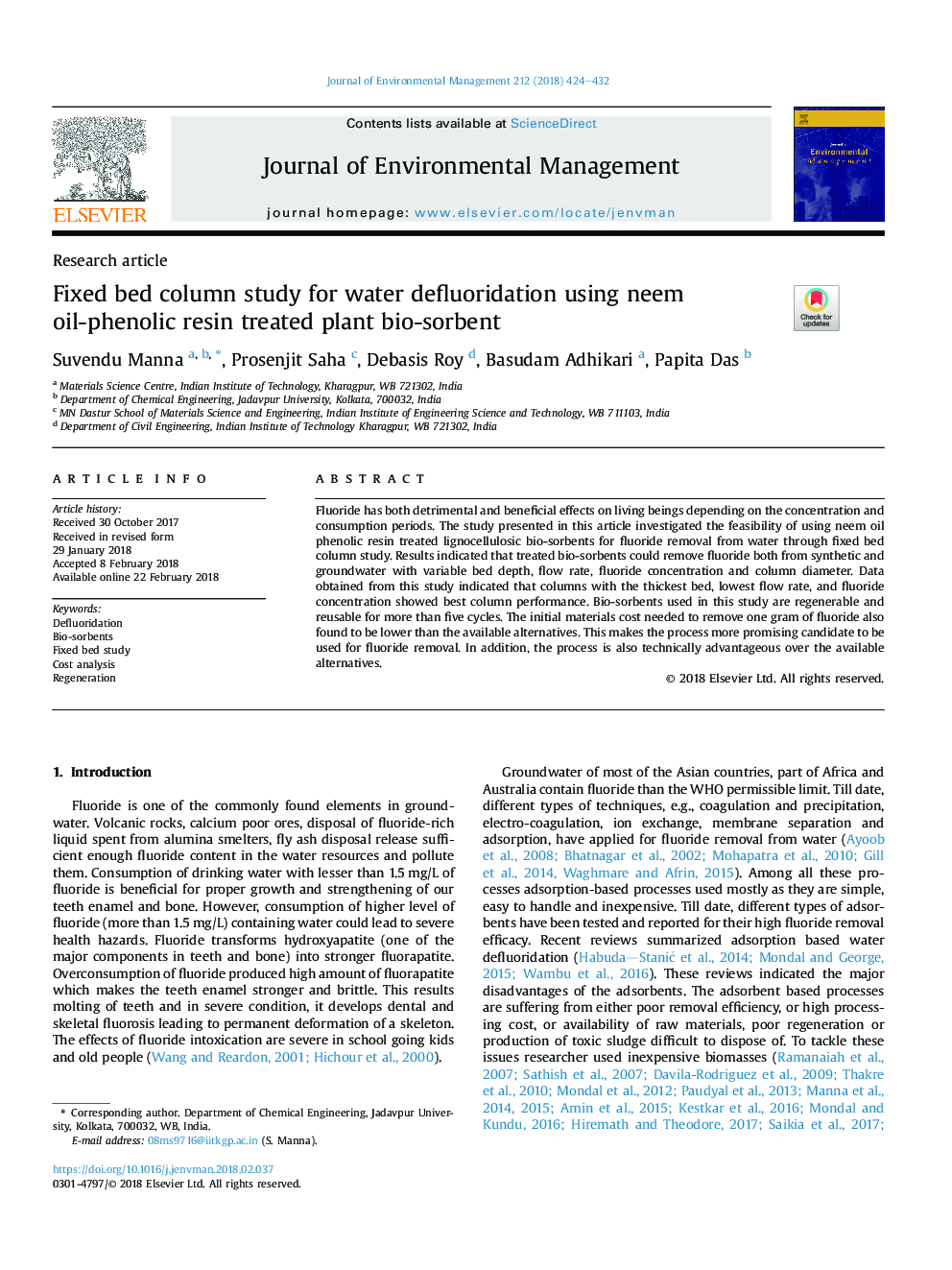| Article ID | Journal | Published Year | Pages | File Type |
|---|---|---|---|---|
| 7478308 | Journal of Environmental Management | 2018 | 9 Pages |
Abstract
Fluoride has both detrimental and beneficial effects on living beings depending on the concentration and consumption periods. The study presented in this article investigated the feasibility of using neem oil phenolic resin treated lignocellulosic bio-sorbents for fluoride removal from water through fixed bed column study. Results indicated that treated bio-sorbents could remove fluoride both from synthetic and groundwater with variable bed depth, flow rate, fluoride concentration and column diameter. Data obtained from this study indicated that columns with the thickest bed, lowest flow rate, and fluoride concentration showed best column performance. Bio-sorbents used in this study are regenerable and reusable for more than five cycles. The initial materials cost needed to remove one gram of fluoride also found to be lower than the available alternatives. This makes the process more promising candidate to be used for fluoride removal. In addition, the process is also technically advantageous over the available alternatives.
Related Topics
Physical Sciences and Engineering
Energy
Renewable Energy, Sustainability and the Environment
Authors
Suvendu Manna, Prosenjit Saha, Debasis Roy, Basudam Adhikari, Papita Das,
